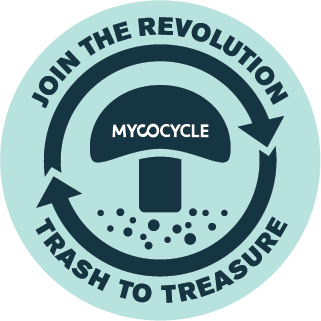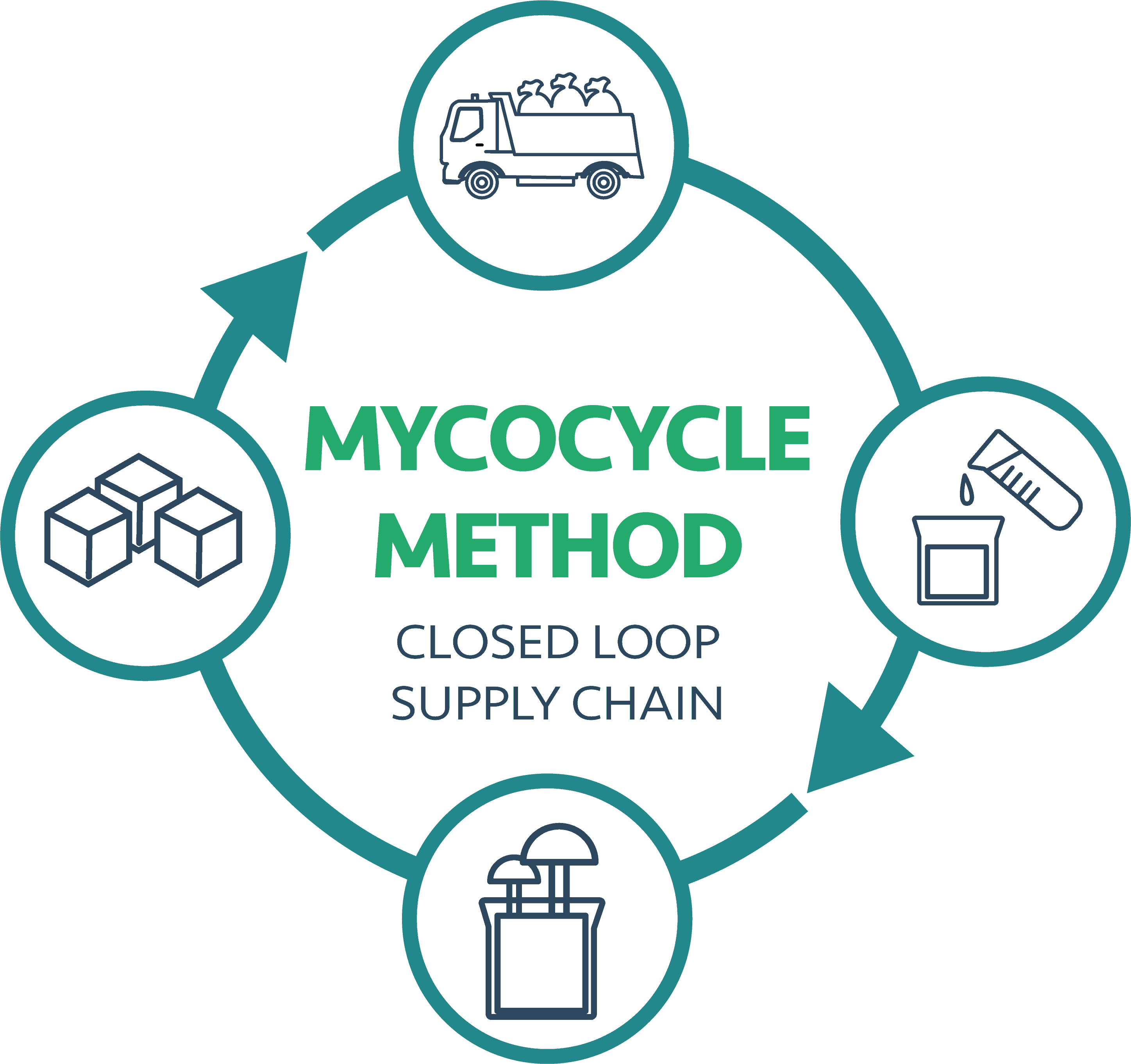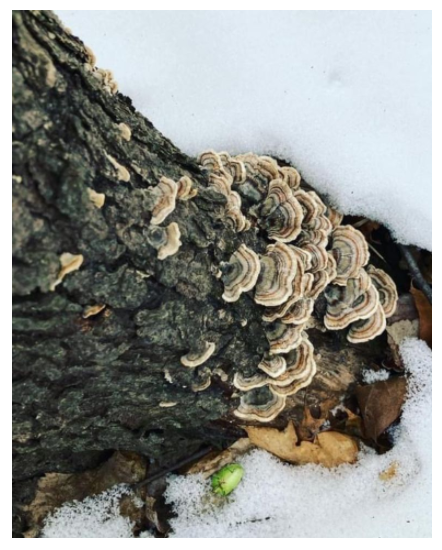Mycocycle
Transforming old waste practices into a new eco-friendly market opportunity; in less time, at equal costs, and with greater profit.
Mycocycle is a low-carbon process that reduces toxins in waste, diverting it from waste management, and creating new biobased materials for reuse - using mushrooms. The process can be applied to petrochemical containing waste streams like: asphalt, fibers, gypsum, and rubber and reduces the carbon associated with the materials management cycle.
The New Recycling Economy
 Mycocycle is addressing some of the world’s hardest to treat toxic constituents created from plastics and petrochemical.
Mycocycle is addressing some of the world’s hardest to treat toxic constituents created from plastics and petrochemical.
Eliminating a significant strain on our ecosystem our technology diverts materials from landfills, allowing for reuse into other applications
Solutions made through nature
Mushrooms break down complex carbons in the natural world. We applied the science of Mycology to leverage this solution in the lab and are able to eliminate toxins naturally.
This process is both cost-effective and sustainable. Once remediated, the result is a renewable byproduct that is fire and water-resistant and can be manufactured into new products—allowing the process to further pay for itself within the closed-loop ecosystem.
Converting waste stream into value streams
When you remove a roof, you have A LOT of trash, not just any trash, but construction and demolition debris. Until now, the roofing industry and other asphalt and chemical manufacturers have not been able to achieve zero-waste because the products manufactured were ultimately contaminated with toxic constituents.
Mycocycle addresses this problem head-on by remediating toxic constituents.
This process is both cost-effective and sustainable. Once remediated, the result is a renewable byproduct that is fire and water-resistant and can be manufactured into new products—allowing the process to further pay for itself within the closed-loop ecosystem.
Mycocycle’s process promotes a closed loop supply chain, converting carbon waste to a usable by-product.
 This cost-effective supply chain solution turns construction and demolition waste that would otherwise be incinerated or piled in landfills into a versatile material. This material is durable enough to replace petroleum-based products such as plastics while being moldable and fire and water-resistant, a truly sustainable solution.
This cost-effective supply chain solution turns construction and demolition waste that would otherwise be incinerated or piled in landfills into a versatile material. This material is durable enough to replace petroleum-based products such as plastics while being moldable and fire and water-resistant, a truly sustainable solution.
The mycoremediation process uses mycelium to break down hard-to-treat materials. Mycocycle’s green technology has successfully treated petroleum-based materials with the following results:
• Remediates PAH’s
• Remediates Phthalates
• Sequester heavy metals
• Remediates POPS (persistent organic pollutants)
Environmental Experts Radio on Apple Podcasts
Joanne talks about all things fungi and how Mycocycle is using the amazing powers of mushrooms to turn trash into treasure.
Did you know.....
While most mushrooms grow best in temperatures between 55 degrees F and 60 degrees F, there are several mushroom species that defy nature and grow during the winter? Some notable examples of these cold weather growers are oyster, wood ear, and turkey tail mushrooms (pictured below). These mushrooms are usually found low to the ground on the trunks of trees.














